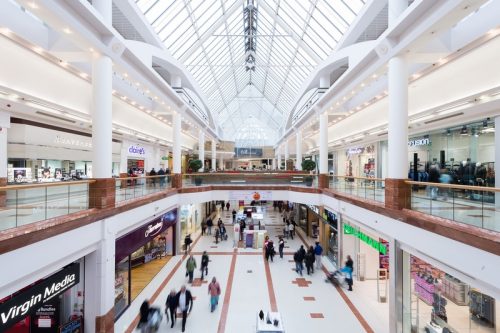intu reveals huge write-down as estate value plummets

intu, which owns the Merry Hill Shopping Centre in Dudley, has posted a hug write-down of its assets with a loss of £1.17bn for 2018.
The company has put the loss down to a revaluation deficit of £1.4bn, which it says is driven by weakening sentiment in the UK retail property investment market, but says it results show a “resilient” performance.
Despite this, the company’s rental income increaed by 0.6% over the year.
intu is about to kick-off the redevelopment of the Broadmarsh centre in Nottingham. It says it will spend £30m on the scheme this year, £32m next year and £20m in 2021.
The company says some 45% of the project is either exchanged or in “advanced negotiations”. The redevelopment is expected to complete in the second half of 2021, intu says.
David Fischel, intu chief executive, said: “intu has again delivered a resilient operational performance which demonstrates how our centres differentiate themselves as winning destinations for retailers with their variety and excitement. We own and manage many of the best shopping centres, in some of the strongest locations, in the UK and Spain.”
Richard Lim, chief executive, Retail Economics, said: “Seismic shifts in shopping behaviour have fundamentally changed the way consumers and retailers use property. Put simply, we have too many shops, too much space and there’s a desperate need to repurpose excess capacity in many locations throughout the UK.
“The critical issue for landlords is the volatile and disparate performance of retailers. Some retailers are better positioned to cope with the behavioural shifts facing them, but many are struggling to position themselves to absorb significant additional costs and re-engineer a more experience and digitally focused business model. This in part has fuelled negative sentiment in the retail property market and we expect further negative asset write-downs in retail property.
“As a result, the property market will become increasingly polarised as retailers continue to restructure property portfolios and apply more stringent location and cost requirements when selecting new properties and extending leases on existing space. Primary locations in large city centres and key regions continue to demand high and rising rental values, but secondary markets with excess capacity and declining levels of footfall will remain weak, leading to a broad dispersion in market performance.”









